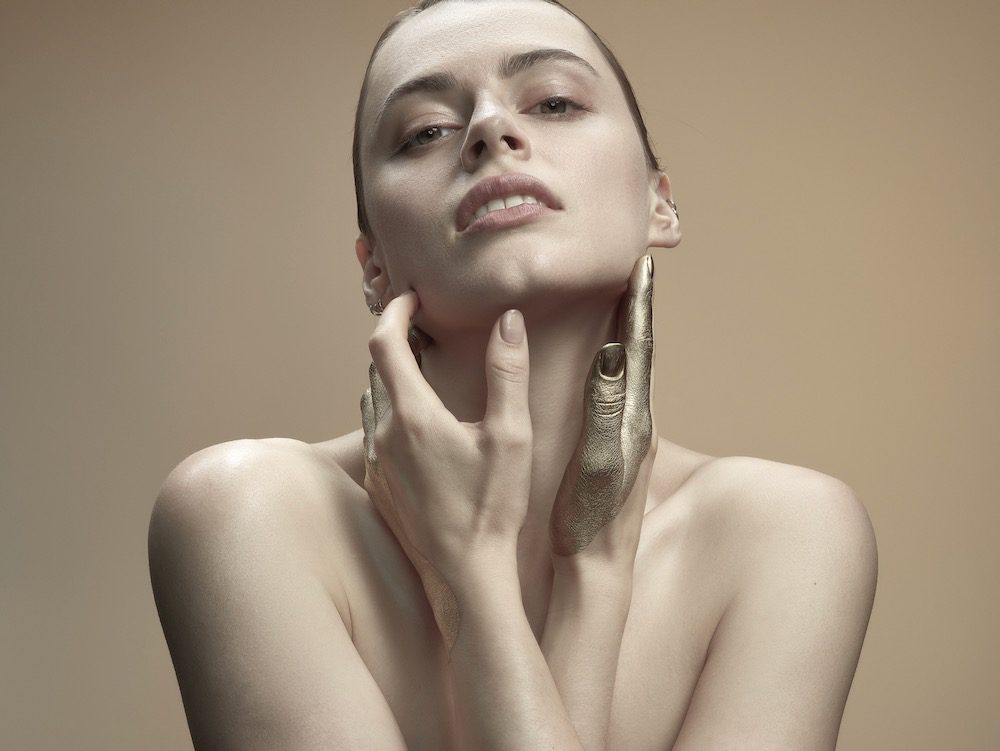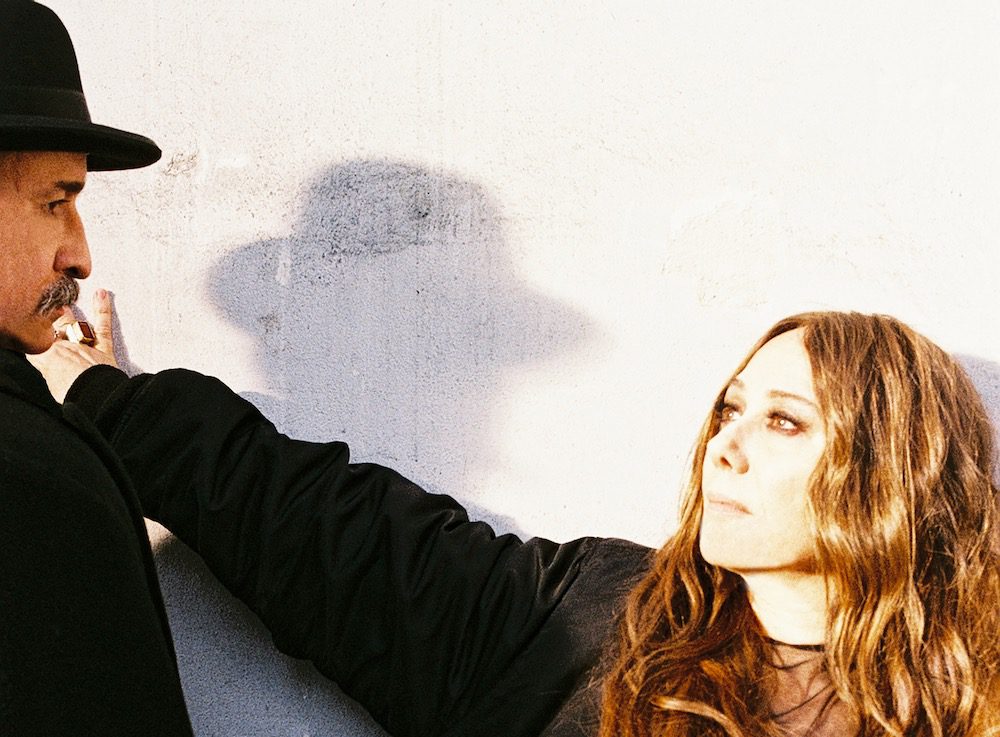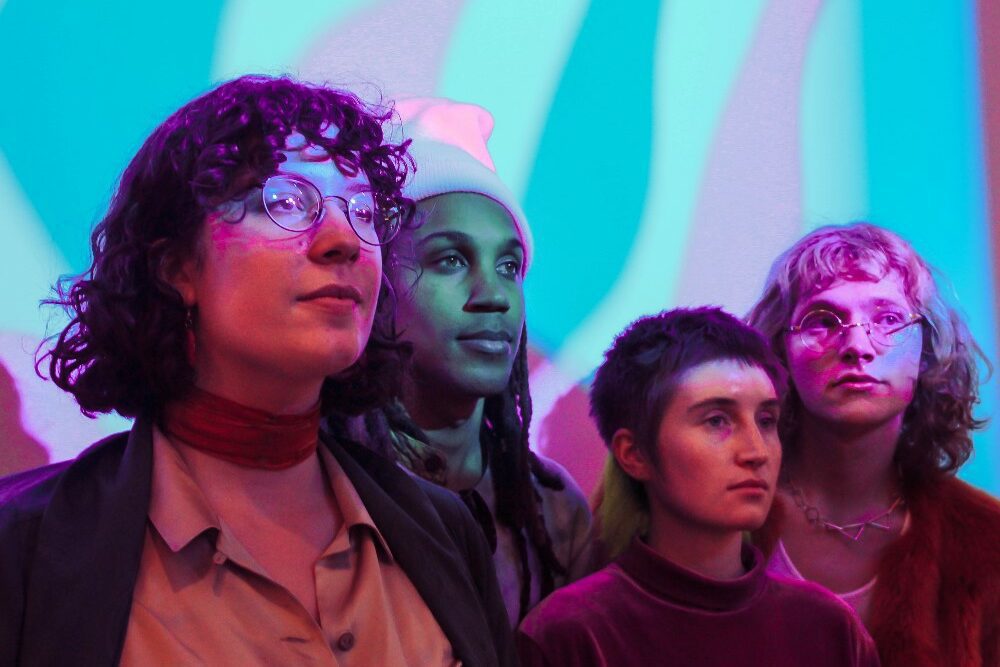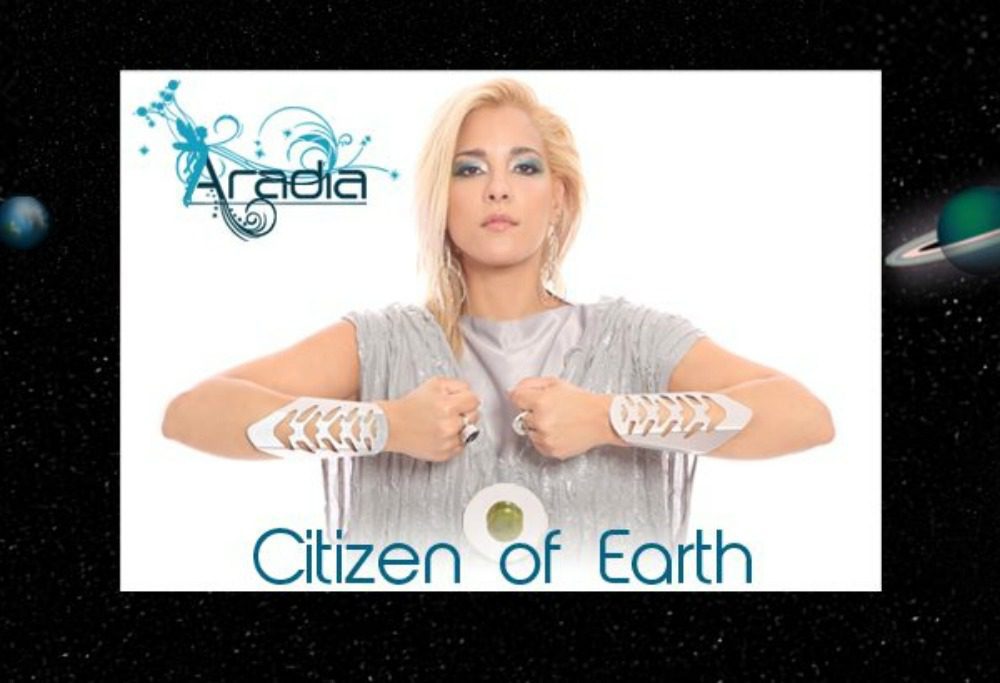

Riki knew that she wanted to include a cover song on Gold, released on November 26 via Dais Records, and had been working with a couple different song possibilities when she settled on “Porque Te Vas,” the 1974 melancholy pop song from Spanish singer Jeanette. “When I was demoing it, it just felt right,” she says on a video call from her home in Los Angeles, adding that it was a song where she could inject something new into it while also conveying “the message of the song is in an honest way.”
“Porque Te Vas” is a song that’s been in Riki’s life for so long that she can’t recall when she first heard it. “It’s in my mom’s vernacular of songs that she would play, so I’ve known that song since I was a little kid,” she says. “My mom, when she would drive us— my brothers and sisters and I— around, we would listen to a lot of music in the car. Both of my parents were really into music, but that was a different vibe. It’s like everyone is having their introspective time, kind of quiet time, even as a kid, just listening.”
In her version of “Porque Te Vas,” with vocals that sound as if they are transmitting from the past, Riki captures that special connection people can have to songs first heard as children. “Songs like that, they become part of you in such a profound way, like DNA-level almost,” she says.
The cover also reflects the very slight shift in sound— and a big shift circumstances— between the release of Riki’s debut album and her sophomore effort. Her self-titled debut was released on Valentine’s Day of 2020, a few weeks before Los Angeles clubs, and nightlife throughout much of the world, shut down due to the COVID-19 pandemic. “I had no idea what was in store, of course,” she says. Ultimately, the pandemic would impact the sound of her follow-up; the songs on Gold, from upbeat tunes like “Lo” and “Marigold” to slower numbers like “It’s No Secret” and “Florence and Selena,” are reflective of the period in which the album was made. Riki describes it as a “stay at home with your headphones and your stereo system” sort of record.
Running counter to that, Riki’s first album was steeped in pre-pandemic life. With nods to classic synthpop and Italo disco, it was music to make you move. “The first album was a bit of a dance, a club thing,” says Riki. “I think that’s where it would be best served, a club, and the second album is not at all that way.”
“When I was demoing these songs, there was an altered state of everything, everyone was in either solitude or a little pod of people that they were shut in with,” she says. “That was interesting for demos because there’s a lot of introspective energy there.”
When it came time to record the songs, Riki worked with producer Josh Eustis (Telefon Tel Aviv). “We have a huge overlap in our musical tastes,” she says, adding that this allowed them space for creative exploration. “It was really fun in that way. I’ve never had that experience before, so it was very exciting.”
Riki grew up in Portland, Oregon and began making music there, but pursued it more seriously after moving to Oakland. There, she played in a few bands, including Crimson Scarlet. “It was very fun and theatrical,” she says of the punk outfit.
After moving to Los Angeles seven years ago, Riki shifted her attention to her solo work. She says that the city has influenced her music in a few ways. “I have a little bit more of a routine here. I’m a little bit more secure and living a more adult kind of life. It’s less chaos, parties, let’s go wild,” she says. “I don’t go to as many shows as I used to before moving here, just because it’s a city that’s a little more expensive. I have to work, do all that, so a lot of my music listening has come more from getting recommendations from friends, not necessarily L.A.-based music.”
Since last summer, Riki has been able to perform again as well. “They’ve been, certainly, some of the best shows that I’ve ever played,” she says. “The energy of people coming out right now is all-in. It’s awesome.”
These gigs included her first solo show in New York, where she opened for Cold Cave at Webster Hall. “They have really wonderful people that listen to their music and are super supportive,” she says of Cold Cave. She also played her first ever shows in Florida, at Absolution Fest, and in Chicago, as part of Cold Waves Festival. “Those shows are three of my favorite shows that I’ve ever done,” she says.
Riki has also been gigging around L.A., with a stint opening for Cold Cave at The Wiltern, and sets at Los Angeles’ Cold Waves Festival in September. In 2022, she’ll be hitting the road for a U.S. tour with Choir Boy.
Follow Riki on Instagram for ongoing updates.




